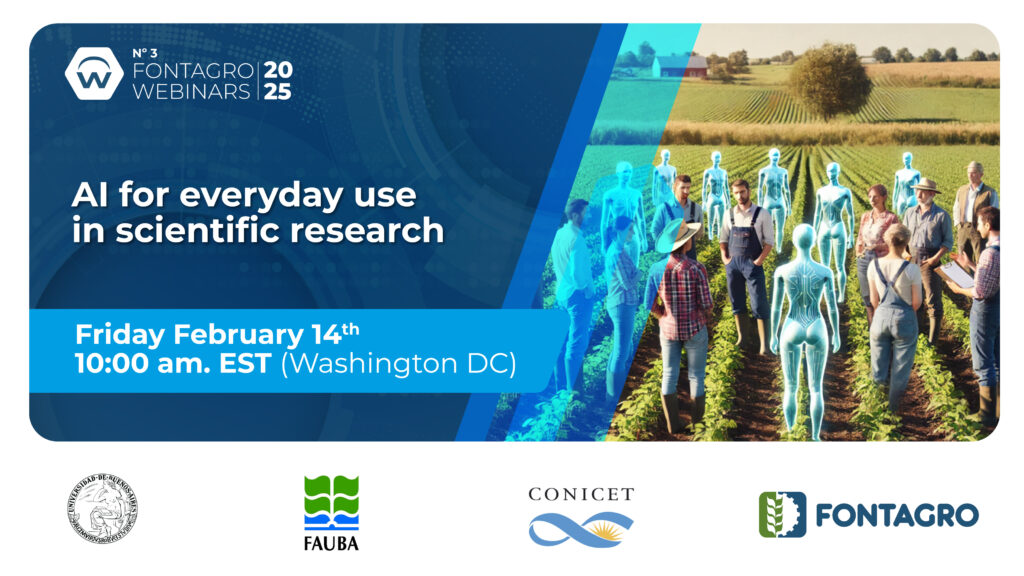
In recent years, generative artificial intelligence has become an accessible tool for those of us engaged in scientific and technological research. We are experiencing a fascinating transition, marked by varying levels of adoption of this technology and the emergence of many questions about its possibilities and limitations.
In this webinar, Dr. Martín Oesterheld – Head of Research at FONTAGRO – will share practical applications that can be inspiring and useful, especially for those who have not yet explored this exciting field.
Discover how AI can:
– Analyze problems from multiple perspectives.
– Provide and search for information in a personalized manner.
– Accelerate the reading of technical documents, even breaking language and disciplinary barriers.
– Assist in writing texts and creating images or videos tailored to different audiences.
– Work with complex data and perform advanced statistical analyses.
– Generate programs in various programming languages from natural language instructions.
– Plan and execute complex actions, such as application development.
To register for this free webinar, visit: https://forms.office.com/r/8WLFhZce92
***
About FONTAGRO
FONTAGRO was created 1998 with the purpose of promoting the increase of the competitiveness of the agri-food sector, ensuring the sustainable management of natural resources and the reduction of poverty in the region. The objective of FONTAGRO is to establish itself as a sustainable financing mechanism for the development of agricultural technology and innovation in Latin America and the Caribbean and Spain, and to establish a forum for the discussion of priority topics of technological innovation. The member countries are: Argentina, Bolivia, Chile, Colombia, Costa Rica, Ecuador, Spain, Honduras, Nicaragua, Panama, Paraguay, Peru, Dominican Republic, Uruguay and Venezuela. In the last 27 years 204 regional agricultural innovation platforms have been co-financed for an amount of US $ 150.7 million, which has reached 531 institutions and 35 countries worldwide.
